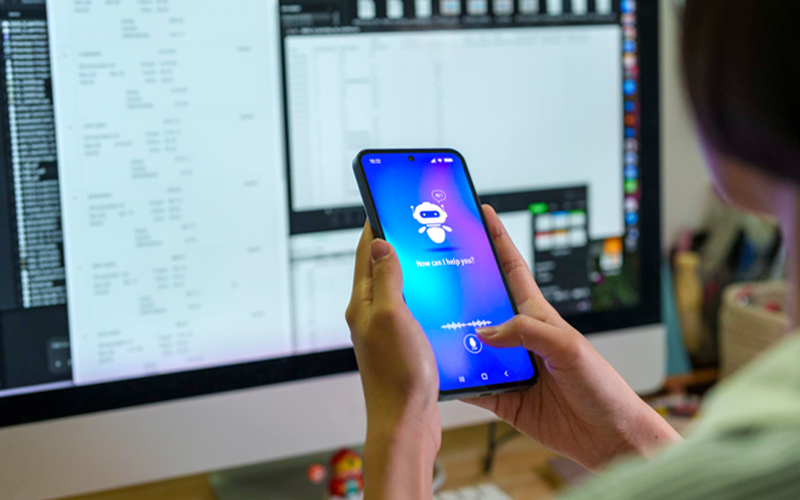Today, we are living in the age of Artificial Intelligence (AI). This revolutionary technology has made huge strides across sectors including healthcare. One fascinating application of AI in medicine is the development of generative AI drugs. Generative AI systems have emerged as a powerful tool in the quest for developing new and innovative drugs. These drugs are created using sophisticated algorithms that have the potential to revolutionise the way we approach drug discovery and development.
What are Generative AI Drugs?
The use of AI in drug discovery entails generating new content such as molecules, compounds, or drug candidates based on specific criteria sets. Generative AI drugs are essentially pharmaceutical compounds that are designed and developed using generative AI algorithms. These algorithms are trained on vast amounts of data, including chemical structures, biological interactions, and clinical trial results. Generative AI models analyse this data to generate novel drug candidates with specific properties and target mechanisms.
How are generative AI systems impacting drug discovery?
- Boosting Efficiency and Speed
- Expanding the chemical space;
- Targeting specific diseases;
- Overcoming data limitations;
- Facilitating collaboration;
- Overcoming drug resistance;
- Offering personalised therapies;
Generative AI algorithms accelerate the speed of the time-consuming traditional drug discovery processes by generating vast libraries of virtual compounds and predicting their properties. This enables researchers to focus on options that come across as most promising. As a result, a significant amount of resources as well as time is optimised.
Generative AI algorithms explore and generate novel chemical structures that may not have been previously considered by human researchers. These algorithms open up new possibilities for developing drugs with improved efficacy and reduced side effects.
Generative AI systems are trained on large datasets of known drug-target interactions. Based on this training, Gen AI models can predict potential drug candidates for specific diseases. This targeted approach enables researchers to identify novel compounds that have a higher likelihood of success in treating specific conditions.
One of the challenges of traditional drug discovery is the limited availability of high-quality data. Generative AI in medicine overcomes this limitation by learning from existing data and generating new data points. This synthetic data can then be used to train models and enhance accuracy, ultimately leading to better drug discovery outcomes.
Generative AI algorithms can facilitate collaboration and knowledge sharing among researchers. By providing a platform for multi-turn conversations, like ChatGPT, scientists can exchange ideas, discuss findings, and collectively work towards solving complex drug discovery challenges. This collaborative approach has the potential to accelerate breakthroughs and foster innovation in the field.
Drug resistance is a significant challenge in healthcare. Generative AI drugs can help overcome this issue by designing novel compounds that target drug-resistant strains or mechanisms. This approach may provide new solutions to combat antibiotic resistance and other drug-resistant diseases.
Generative AI algorithms can be programmed to focus on specific disease targets or mechanisms. This targeted approach allows for the development of drugs that are tailored to individual patients or specific diseases, potentially increasing treatment efficacy and reducing side effects.
Hence, it is evident that the use of AI in drug discovery not only speeds up the process but also has the potential to provide more effective treatments for a range of diseases benefiting patients worldwide.
The future of Generative AI drugs
The potential of generative AI in medicine is vast, and ongoing research and development are paving the way for exciting advancements.
Future implications of generative AI systems in drug discovery:
- Personalised medicine: Generative AI models consider an individual's genetic makeup, lifestyle, and disease characteristics and generate drugs tailored to specific patients, maximising treatment effectiveness.
- Rare disease treatments: Traditional drug discovery often neglects rare diseases due to limited market potential. Generative AI systems can overcome this barrier by efficiently exploring potential treatments for rare diseases.
- Drug repurposing: Gen AI algorithms can identify potential new uses of existing drugs based on the analysis of their mechanisms of action. This approach, known as drug repurposing, can expedite the development of treatments for new indications, saving time and resources.
Hence, it comes as no surprise that the generative AI drug discovery market size is expected to reach a whopping $ 1129 million by 2032 at a CAGR of 27.1% from 2023 to 2032.Generative AI in medicine has the potential to revolutionise the pharmaceutical industry by accelerating drug discovery, enabling targeted therapies, and overcoming drug resistance. With ongoing research and collaboration, generative AI systems hold the promise of personalised medicine, rare disease treatments, and efficient drug repurposing. As we continue to explore the use of AI in drug discovery, generative AI drugs offer a glimpse into a future where innovative treatments are within reach.
How can Infosys help?
Infosys offers a Generative AI business operations platform that can be tailored to the specific needs of the healthcare industry. This platform includes features that streamline the processes relevant to drug discovery to boost efficacy.







